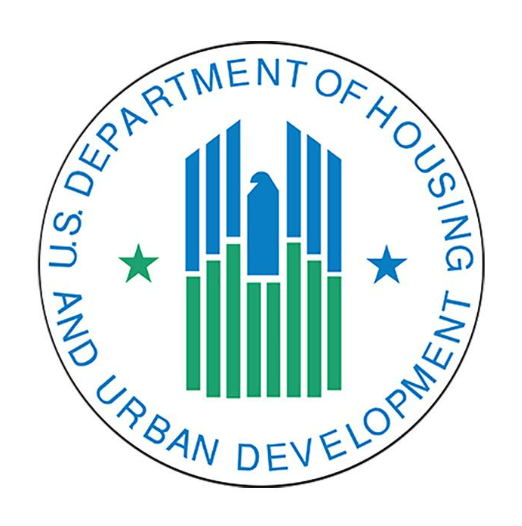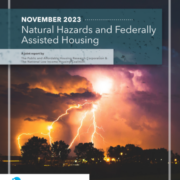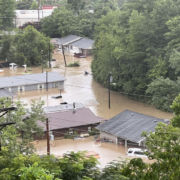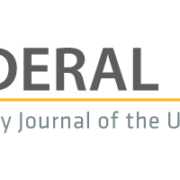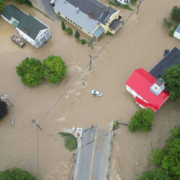Hurricane Idalia hit Florida’s Big Bend coast as a Category 3 storm on Wednesday, August 31, 2023, downgraded to a tropical storm when reaching the Carolinas, and went out to the Atlantic Ocean. Currently, over 210,000 households and businesses are without power. Many areas are experiencing flooding, downed trees, and major destruction to homes and buildings. At this time, only one death is confirmed as caused by a fallen tree.
HAC offers the following resources with information for nonprofits and communities dealing with loss and damage from Hurricane Idalia: Rural Resilience in the Face of Disaster site and Disaster Response for Rural Communities Guide.
If you are in need of emergency, transient housing, you can text SHELTER and your Zip Code to 43362 (4FEMA) to find where the shelter closest to you is located.
TIPS
Please keep in mind the following safety protocols for hurricanes and flooding:
- Only call 911 if you have an immediate need for medical attention or evacuation assistance.
- If you can’t get through to 911 on first try, keep calling.
- DO NOT DRIVE through high water and DO NOT DRIVE AROUND BARRICADES! Just 2 feet of water can sweep your vehicle away.
- DO NOT WALK through flood waters. Just 6 inches of moving water can knock you down.
- If your home floods, STAY THERE. You are safer at home than trying to navigate flooded streets on foot.
- If floodwaters rise around your car but the water is NOT MOVING, abandon the car and move to higher ground. Do not leave the car and enter MOVING water.
- STAY AWAY from streams, rivers, and creeks during heavy rainfall. These areas can flood quickly and with little warning.
- MOVE important items – especially important documents like insurance policies – to the highest possible floor. This will help protect them from flood damage.
- DISCONNECT electrical appliances and do not touch electrical equipment if you are wet or standing in water. You could be electrocuted.
This flooding event is a reminder that all residents in this area should carry flood insurance. Contact your insurance agent for more information about purchasing flood insurance or visit the National Flood Insurance Program at www.fema.gov/national-flood-insurance-program or call 1-888-379-9531. Please keep in mind that new insurance policies take 30 days to go into effect.
If your home has experienced damage, remember to check the outside of your home before you enter. Look for loose power lines, broken or damaged gas lines, foundation cracks, missing support beams, or other damage. It may be safest to ask a building inspector or contractor to check the structure before you enter. Do not force jammed doors open, as they may be providing needed support to the rest of the home. Sniff for gas to ensure there are no natural or propane gas leaks. If you do have a propane tank system, make sure to turn off all valves and contact a propane supplier to check the system before you use it again. Check floors and ceilings to ensure they are not sagging from water damage. This can be especially hazardous. Take photographs of any damage as you may need them for insurance claims or FEMA claims later on.
RESOURCES
Apply for FEMA Assistance by registering online at www.DisasterAssistance.gov. FEMA Disaster Assistance Helpline answers questions about the help offered by FEMA, how to apply for assistance, or the information in your account.
Toll-free helpline: 1-800-621-FEMA (3362)
For hearing impaired callers only:
1-800-462-7585 (TTY)
1-800-621-3362 (Video Relay Service)
Operators are multilingual and calls are answered seven days a week from 7 a.m. to 11 p.m. ET
American Red Cross Disaster Service: For referrals and updates on Red Cross shelter services in your area, locate a local Red Cross office through: https://www.redcross.org/find-help or by calling 1-800-RED CROSS (1-800-733-2767).
The Red Cross helps disaster victims by providing safe shelter, hot meals, essential relief supplies, emotional support and health services like first aid. Trained Red Cross workers often meet one-on-one with families to develop individual plans and identify available resources to help aid recovery.
STATE EMERGENCY MANAGEMENT AGENCIES
Florida
Florida Division of Emergency Management
2555 Shumard Oak Blvd.
Tallahassee, Florida 32399-2100
Phone: (850) 815-4000
https://www.floridadisaster.org/
Georgia
Georgia Emergency Management and Homeland Security Agency
935 United Ave. SE
Atlanta, GA 30316-0055
Phone: (404) 635-7200
https://gema.georgia.gov/locations
North Carolina
North Carolina Emergency Management
Phone: 919-825-2500
https://www.ncdps.gov/our-organization/emergency-management
South Carolina
South Carolina Emergency Management Division
Phone: (803) 737-8500
https://www.scemd.org/
STATE HOUSING AGENCIES
Florida
Florida Housing Finance Corporation
227 N Bronough Street, Suite 5000
Tallahassee, FL 32301-1367
Phone: (850) 488-4197
http://www.floridahousing.org
Georgia
Georgia Department of Community Affairs / Georgia Housing and Finance Authority
60 Executive Park South NE
Atlanta, GA 30329-2231
Phone: (404) 679-4940
http://www.dca.ga.gov
North Carolina
North Carolina Housing Finance Agency
3508 Bush Street
Raleigh, NC 27609-7509
Phone: (919) 877-5700
https://www.nchfa.com/
South Carolina
South Carolina State Housing Finance and Development Authority
300 Outlet Pointe Boulevard, Suite C
Columbia, SC 29210
Phone: (803) 896-9001
Fax: (803) 551-4876
http://www.schousing.com
DEPARTMENT OF HOUSING AND URBAN DEVELOPMENT STATE FIELD OFFICES
Florida
Jacksonville Field Office
Charles E. Bennett Federal Building
400 W. Bay Street, Suite 1015
Jacksonville, FL 32202
Phone: (904) 232-2627
Director: Alesia Scott-Ford
https://www.hud.gov/states/florida/offices
Miami Field Office
Brickell Plaza Federal Building
909 SE First Avenue, Room 500
Miami, FL 33131-3028
Phone: (305) 536-4456
Director: Luis M. Rolle
Georgia
Atlanta Regional Office
Five Points Plaza Building
40 Marietta Street
Atlanta, GA 30303
Phone: (404) 331-5136
Regional Administrator: José Alvarez, Regional Administrator
Phone: (678) 732-2200
https://www.hud.gov/states/georgia/offices
North Carolina
Greensboro Field Office
Asheville Building
1500 Pinecroft Road, Suite 401
Greensboro, NC 27407
Phone: (336) 547-4000
Director- Lorenzo Claxton
https://www.hud.gov/states/north_carolina
South Carolina
Columbia Field Office
Dept. of Housing and Urban Development Strom Thurmond Federal Building
1835 Assembly Street, 13th Floor
Columbia, SC 29201
Phone: (803) 765-5592
Director- Kristine Foye
https://www.hud.gov/states/south_carolina
USDA RURAL DEVELOPMENT STATE OFFICES
Florida
4500 NW 27th Avenue
Suite D-2
Gainesville, FL 32606
Phone: (352) 338-3400
Director: Lakeisha Hood
https://www.rd.usda.gov/fl-vi
Georgia
Stephens Federal Building
355 E. Hancock Avenue, Stop 300
Athens, GA 30601-2768
Phone: (706) 546-2162
Director: Reggie Taylor
https://www.rd.usda.gov/ga
North Carolina
4405 Bland Road, Suite 260
Raleigh, NC 27609
Phone: (919) 873-2000
Director: Reginal Speight
https://www.rd.usda.gov/nc
South Carolina
Strom Thurmond Federal Building
1835 Assembly Street, Room 1007
Columbia, SC 29201
Phone: (803) 765-5163
Director: Dr. Saundra Glover
https://www.rd.usda.gov/sc


